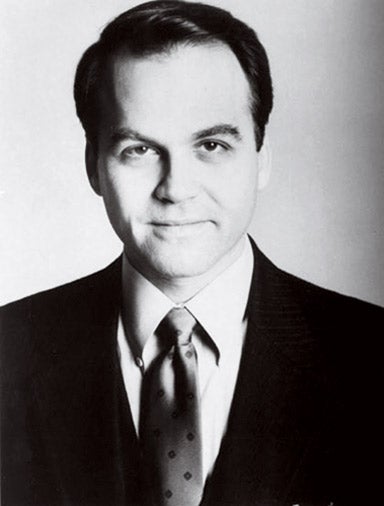Best known for his mystery novels and a memoir about his first year at HLS, author Scott Turow ‘ 78 spoke on campus in mid-October about a weightier issue: the death penalty. Turow walked 150 students in Ames Courtroom through his personal journey to opposing the death penalty, a path he recounts in his newest book, “Ultimate Punishment.”
“If the reality is that it’s ultimate punishment for ultimate evil, and for being poor, and for having the wrong lawyers, and because the prosecutor wanted to pursue the death penalty for the prosecutor’s own reasons, and sometimes even for the innocent, then we’re not sending an unequivocal moral message,” he said.
Turow was a member of the Illinois Commission on Capital Punishment, which issued a report in April 2000 recommending 85 specific changes to the state’s capital punishment system. Even with these changes, he believes capital punishment will not work.
“I was asking myself, ‘Are there cases where the death penalty is right?'” Turow said, referring to his initial thoughts on capital punishment. “I should have been asking myself, ‘Can we construct a legal system that reaches those right cases without also sweeping in the wrong cases?’ And my conclusion is that it is inevitable that we will sweep in the wrong cases.”
Turow is familiar with one of those wrong cases. He once represented two men who were sentenced to death for killing a little girl. Six months after the sentencing, another, very similar murder occurred. The person who confessed to the crime also confessed to the previous murder.
Turow’s objections to the death penalty are not limited to the societal costs–the possibility of innocent people being executed. He also believes the benefits have been oversold. Deterrence, for instance, is often cited as a primary justification for the death penalty. Why then, Turow asks, does Texas–with the most executions since the death penalty was reinstated–have a higher-than-average murder rate? Why does pro-death penalty Illinois have a higher rate than anti-death penalty Michigan?
Similarly, the suggestion that capital punishment saves money is also false, according to Turow. He cited an Indiana study that indicated executions cost the state 35 percent more than lifetime sentences. This, said Turow, is the result of “dealing with people like me–hectoring the prosecutors, filing brief after brief in court after court.”
